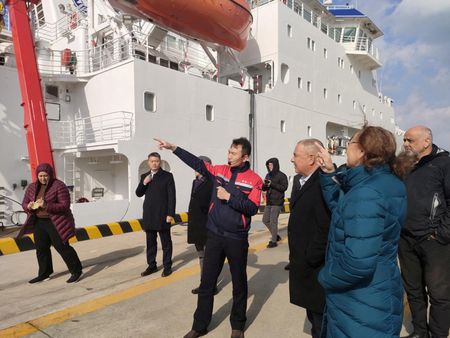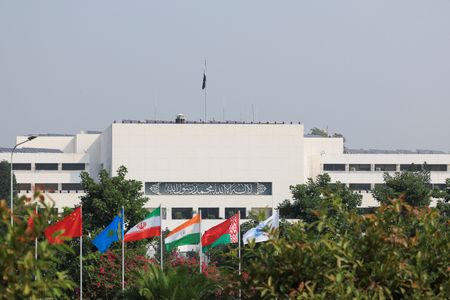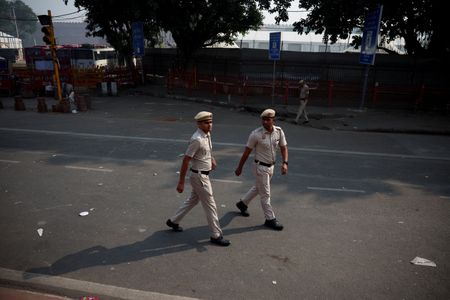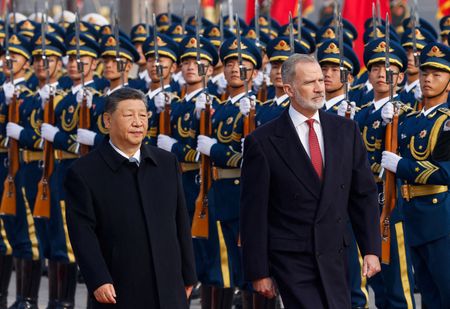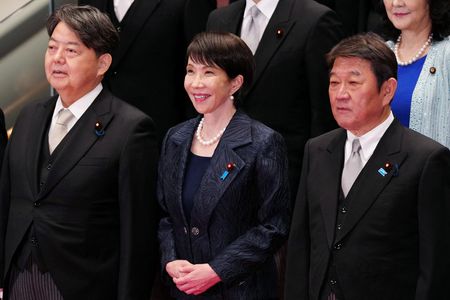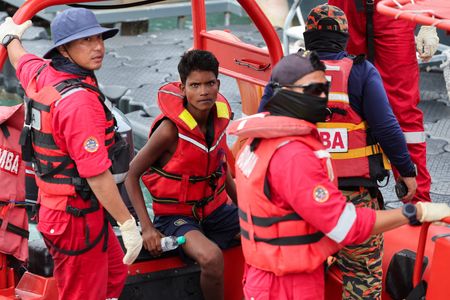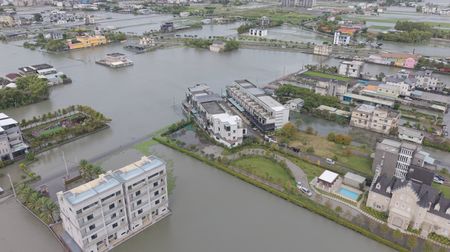By Lucy Craymer
WELLINGTON (Reuters) – Growing ties between Cook Islands and China, including a new comprehensive partnership agreement action plan detailed this week, have raised concerns in New Zealand, which has a close constitutional relationship with its tiny Pacific neighbour.
WHAT ARE THE COOK ISLANDS?
The Cook Islands are a group of 15 small islands and atolls halfway between New Zealand and Hawaii, scattered across 2 million square km of resource-rich Pacific Ocean.
Since 1965, the Cook Islands has been a country in free association with New Zealand. Its citizens have New Zealand passports and all the perks of that – access to New Zealand’s healthcare and education system and the ability to work there. It is permitted an independent foreign policy, but the two countries are required to consult on security, defence and foreign policy issues.
Its population of 15,040 is dwarfed by more than 90,000 who identify as Cook Island Maori and who live in New Zealand.
Now designated a high-income country so no longer eligible for international Official Development Assistance, the small economy relies on tourism – mostly from New Zealand – which collapsed during the COVID-19 pandemic.
China and the Cook Islands established diplomatic relations in 1997 and in 2018 upgraded it to a comprehensive regional strategic partnership with other Pacific island states.
WHAT IS THE AGREEMENT?
The agreement signed by Cook Islands Prime Minister Mark Brown and Chinese Premier Li Qiang outlines a number of areas the two countries will improve cooperation including education, the economy, infrastructure, fisheries, disaster management and seabed mining.
Anna Powles, associate professor at Centre for Defence and Security Studies at Massey University, highlighted enhanced cooperation in areas of hydrography and geospatial research, which has direct military applications.
It also aims for improved cultural ties, but no debt or explicit security ties are included in the deal.
A number of memorandums of understanding were also signed during the visit and these have not been released publicly.
WHAT HAS WORRIED NEW ZEALAND?
New Zealand has complained about a lack of transparency around the agreements signed by Brown with a China that has become significantly more assertive in the Pacific in recent years.
Australia and the United States have pushed back against China’s increased Pacific presence, boosting funding in the region and signing onto new strategic partnerships.
While New Zealand has also boosted aid, it cannot compete financially with China. It has touted its strong diplomatic and cultural ties in the region as a crucial advantage, an argument potentially undermined by the unilateral actions of the Cook Islands.
New Zealand is concerned the Cook Islands government’s push for more autonomy, including an effort to issue its own passports, means it is getting all the benefits of independence while still being part of New Zealand.
The Cook Islands has also wanted to join the United Nations, which New Zealand won’t allow. Under the new agreement, China says it will support the Cook Islands’ aspirations to expand its membership of international organisations.
“This is where China is driving a wedge between the Cook Islands and New Zealand and exploiting Prime Minister Mark Brown’s desire or aspiration for increased independence from New Zealand,” Powles said.
WHAT DOES CHINA WANT?
The Cook Islands has huge untapped seabed mineral resources and is at the forefront of exploring this as yet unproven industry.
The country’s Seabed Minerals Authority estimates there are 6.7 billion tonnes of mineral-rich nodules on its sea floor, which could yield 20 million metric tons of cobalt along with significant amounts of nickel, copper, manganese, iron and rare earth elements needed for tech products and the clean energy transition.
Chinese companies, which dominate the global supply of many such materials, has not been granted one of three exploration licences in Cook Islands waters, but the agreement envisages “further cooperation within the seabed minerals sector”.
Additionally, the Cook Islands is a member of international organisations including the Pacific Islands Forum, which China has built ties in recent years, and the agreement pledges to support each other in multilateral forums.
WHAT IS AT STAKE FOR COOK ISLANDERS?
Closer ties to China provide opportunities for a new stream of tourists and trade as well as technical and/or financial support to develop the seabed mining sector.
However, if the relationship with New Zealand were to worsen further, there is potential that a referendum over the future of the Cook Islands constitution would be needed.
Protests were held in the capital Avarua on Monday in support of remaining in free association with New Zealand and opposition party members have filed a motion of no confidence against Brown, which will be voted after February 25.
“I’ve always viewed New Zealand as a good partner and neighbour,” said Tina Browne, the leader of the opposition. “Why are we risking damaging that relationship?”
(Reporting by Lucy Craymer; Editing by Lincoln Feast.)

